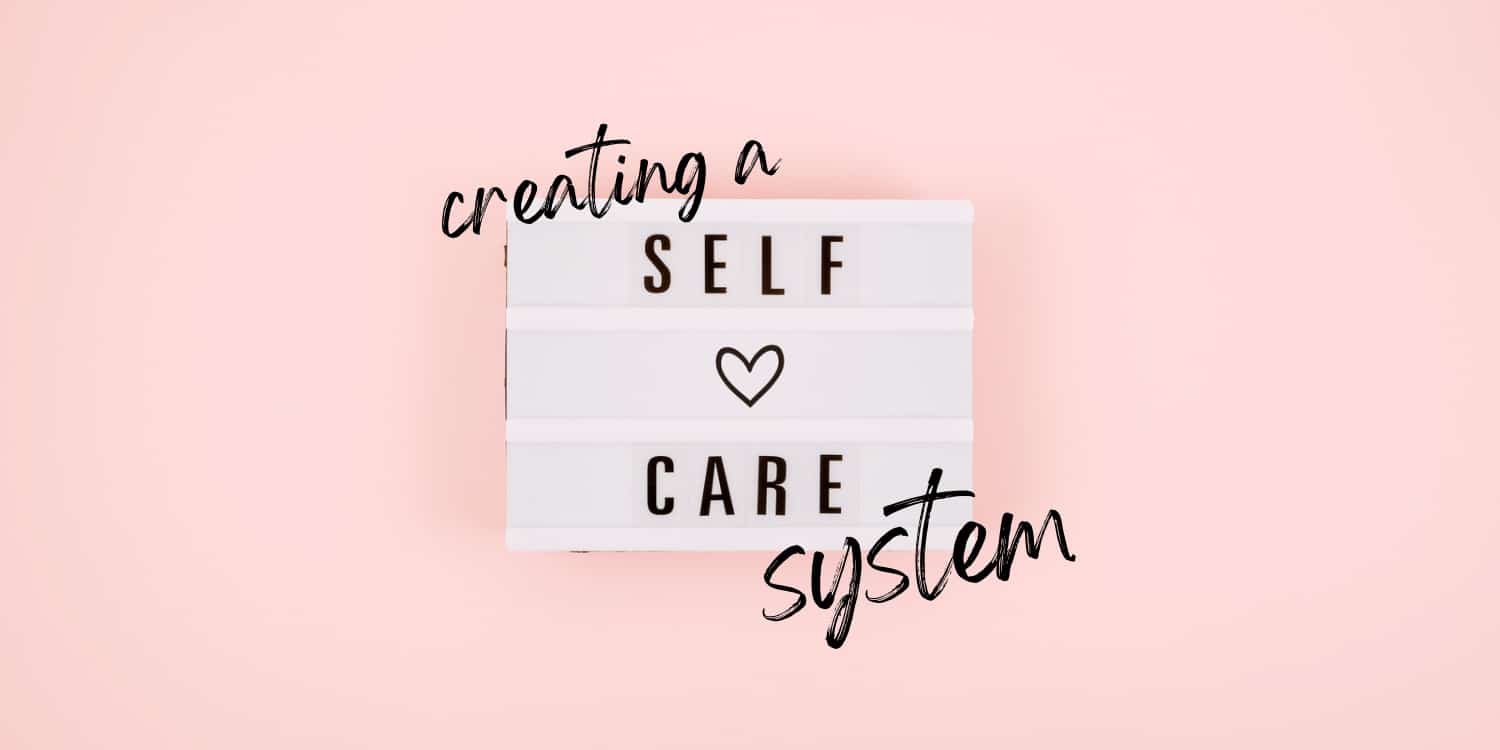using persuasive, habit-forming techniques from Scott Adams & James Clear
It’s inevitable. Sooner or later, life happens and all those good habits you worked so hard to cultivate go straight out the window.
If stressful periods that derail my normal routine go on long enough, I find it incredibly difficult to get back on the horse. It’s so easy to spiral out of control with cravings for comfort food, zero motivation to exercise and less motivation to take care of myself in general.
It’s hard work to shift your brain into a new mindset, and it’s not uncommon to feel a bit paralyzed and out of control. I’ve been there. Many, many times. I’m just getting past one such derailment, and I thought I’d share a few of the mental strategies I’m using to rejuvenate my personal self care routine.
Systems over goals
I’m a longtime fan of the author Scott Adams (yep, that Scott Adams). His excellent How to Lose at Everything and Still Win Big is on a short list of books I think should be required reading in order to graduate high school. A recurring theme in the book is systems over goals as the most effective way of achieving and maintaining most any kind of change.
"If you do something every day, it's a system. If you're waiting to achieve it someday in the future, it's a goal."
Scott Adams
How to Fail at Everything and Still Win Big
While goals can be motivating, they also have some potential drawbacks:
- Goals tend to be future-oriented, causing people to fixate on the end result rather than the process of getting there. This can lead to procrastination or discouragement if progress is slow or if setbacks occur.
- Goals often create an “all-or-nothing” mentality, where you feel like a failure if you don’t reach your target… even if you’ve made significant progress!
- Once a goal is achieved, you risk reverting to old habits. A system is more sustainable, focusing on continuous improvement and development.
Goals often resemble the New Year’s resolutions that we make and promptly forget about each year. An example of a goal would be:
“I’m going to lose 10 pounds,” or “I want to fit into my ‘skinny’ jeans again.”
An example of a system would be:
“I will put on my gym clothes and running shoes every day no matter what — BUT — once I’ve done that, I don’t have to exercise if I don’t feel like it.”
or
“I will do 10 minutes of my workout each day no matter what — BUT — once I’ve done that, I have permission to stop if I want to.”
"You do not rise to the level of your goals. You fall to the level of your system."
James Clear
Atomic Habits
The key to a good system is committing to small, doable part of the habit and giving yourself an “out” if you want to stop after you’ve done that small thing. The idea is, once you’ve gone through the motions enough times, a Pavlovian response will kick in and, more often than not, the act of wearing the gym clothes, running shoes or doing 10 minutes of exercise will stimulate you into actually wanting to do/finish the workout.
Fake it till you make it
So now you’ve identified the outcome you want and created a system to get you there. The next step involves a bit of play acting and a “fake it till you make it” attitude. Think: “What would a HEALTHY person do?” and really try to picture that healthy person and internalize him/her as part of your own identity. Would a truly healthy person do that? If the answer is no, then it at least slows my roll, and makes me think twice about the less than stellar choice I’m getting ready to make.
James Clear teaches the concept of identity-based habit formation in his book Atomic Habits. If our habits and behaviors are a reflection of our current identity, then in order to change those habits, it makes sense that we would first have to change what we believe about ourselves.
"Outcomes are about what you get. Processes are about what you do. Identity is about what you believe."
James Clear
Atomic Habits
"We are designed to become in reality however we act. We fake it until it becomes real. Our core personality doesn’t change, but we quickly adopt the mannerisms and skills associated with our new status and position."
Scott Adams
How to Fail at Everything and Still Win Big
Identity-based habits > outcome-based habits.
So if I want to be the sort of person who spends 15 minutes meditating and doing breathing exercises upon waking each morning, I must shift my identity to really believe I am a person who meditates everyday. It takes practice and persistence, but once you’ve successfully made that mental shift, then you have a behavior that’s going to stick. It becomes unthinkable not to do your meditation/deep breathing routine, because now it’s a part of who you are.
On the other hand, If I believe I’m a person who’s too busy to spend 15 minutes deep breathing, then I might force myself to do it for a couple of weeks, but in the end, the excuse of being too busy will win out, and I will be back to being the person I believe I am.
Lose those cravings
Another technique that resonated with me from one of Scott Adams’ “micro lessons” in his Locals community is don’t diet to lose weight; diet to lose your cravings. Cravings are always there, but I’ve definitely noticed that once something is out of my system for awhile, I stop wanting it so much. It’s just difficult getting over that hump.
For many, sugar is a classic example of this.
So now, when there’s something sugary that I’d like to eat, it’s helpful to remind myself of the unpleasant set-back I’ll deal with after reintroducing sugar to my system. Instead of thinking “I can’t eat this,” instead I think “this is why I don’t *want* to eat this.” More often than not, this gentle reminder is enough to convince me not to do that to myself again.
Self love FTW!
We donʹt need no stinkʹn willpower
In the same vein as bringing cravings under control is: Don’t focus on increasing willpower; focus on decreasing situations where you *need* willpower. It’s a fact that we all have a finite amount of willpower, and any system built on the need for willpower will eventually fail, plain and simple. A better system is to reduce the frequency in which you need to call on your willpower and keep those precious reserves filled.
"The trick to eating right is to keep willpower out of the equation for your diet. Laziness can make you choose healthy foods if you are clever enough to make those foods the most convenient in your house."
Scott Adams
How to Fail at Everything and Still Win Big
Find junk food alternatives that you genuinely love and make them easy to access. Part of my “lazy” system is to always keep a container of cubed pineapple in my refrigerator for moments I absolutely *need* something sweet right this second. YMMV, but for me, pineapple usually fits the bill and brings my sweet tooth to heel.
I make a point of drinking a tall glass of water while I’m making the coffee every morning. Before I sit down with my coffee, I also fill my favorite water bottle — often with a few mint leaves and/or a chunk of pineapple thrown in — and place it at my workspace, so when I sit down at my desk later, there’s already a bottle of water waiting for me to drink throughout the day. No willpower or extra thinking required.
I also try to keep a spare sweet potato or two around, pre-cooked and ready to reheat. This is actually yet another idea gleaned from Scott Adams. A small sweet potato with soy sauce on top has become one of my favorite healthy snacks. It’s low calorie, full of fiber and other good stuff, and the savory, salty soy sauce combined with the creamy mouthfeel of the sweet potato is incredibly satisfying on a number of levels. It tastes like I’m eating something naughty but it isn’t — win-win!
Create a system that prevents you from feeling deprived, so you don’t need willpower in the first place.
"Motivation comes and goes. If you want to do something consistently, then don't pick a level of difficulty that requires great motivation. Make it easy enough and simple enough that you'll do it even when you don't feel very motivated."
James Clear
Atomic Habits
Commit to one lifestyle change each month
You risk overloading your brain if you commit to too many major changes at once. Remember, willpower is finite, and new habits take a little bit of time to get locked in. If you’re beginning a new workout plan or committing to daily breathing exercises, don’t attempt a major overhaul of your diet at the same time. Focus on the small wins, one at a time.
Once you’re feeling comfortable and familiar with your new routine, then you can add something else.
Commit to doing 10 squats every time you visit the bathroom.
Commit to a brisk walk around your neighborhood every morning before you sit down to coffee.
Identify the worst offender in your diet and cut that [one thing] out.
Don’t try to give up all your favorite foods at the same time. (OR don’t worry about cutting things out at all, and instead add something healthy that you don’t normally eat to your diet.)
Spread things out, and allow each new habit time to get a solid foothold before you stack on the next thing.
Never miss twice
Finally, remember that perfection is not realistic and all-or-nothing is not sustainable. Stuff comes up, things happen and you’re going to miss a workout (or whatever wellness habit you’re cultivating) from time to time. Because life. What you can control is whether you let it completely derail you. As James Clear teaches in his book Atomic Habits, focus on building and maintaining your good habit streak; don’t break the chain. But when life happens and you do miss a day, accept it, embrace it and don’t allow yourself “miss twice.”
So you missed a workout. No biggie! You won’t miss tomorrow.
So you ate that candy bar. Enjoy it, don’t stress over it, and don’t eat two.
In other words, try not to focus on the “failure.” Accept it, give yourself some grace, then focus on rebounding as quickly as possible.
What are your strategies for staying on track?
Share them in the comments!


